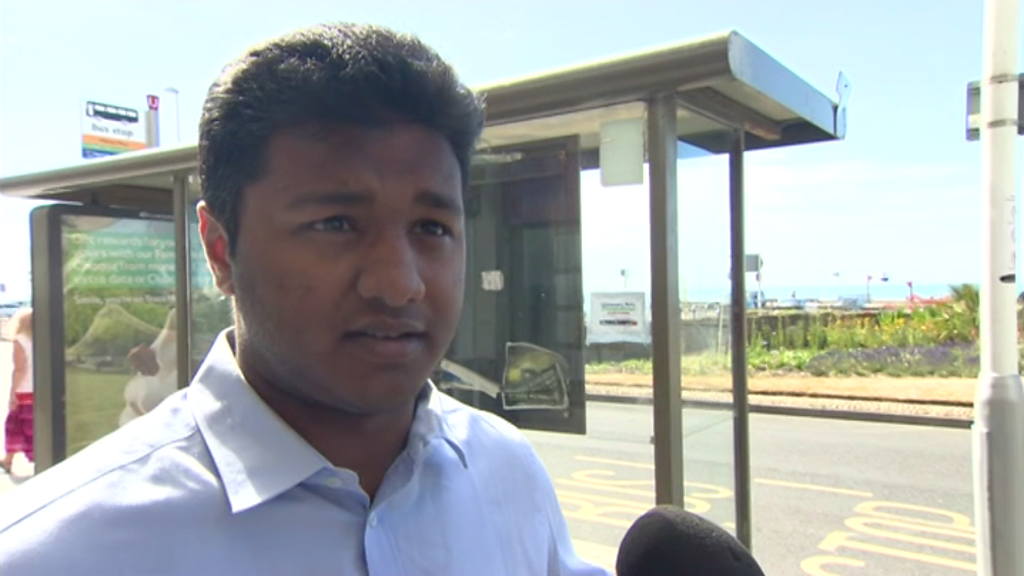Camber Sands: Rip currents 'unlikely cause of deaths'
- Published
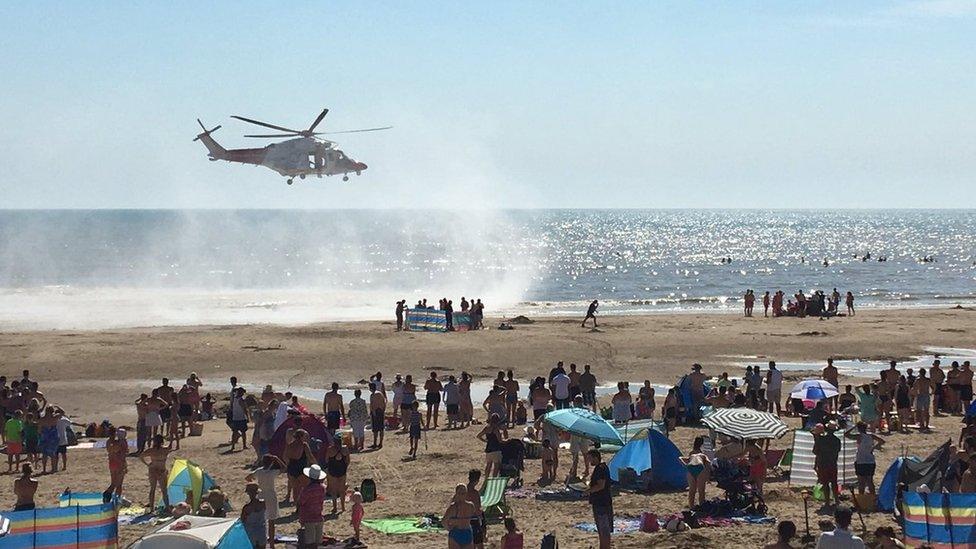
Two brothers died with three of their friends at Camber last year
Rip currents are unlikely to have caused the deaths of five young friends who drowned at Camber Sands, an oceanographer has told an inquest.
Dr Simon Boxall said there was insufficient wave activity to build up rip currents at the Sussex beach.
But he believed the men got into trouble amid a fast, incoming tide.
Dr Boxall told the inquest in Hastings there would have been strong currents that would have had a significant impact even on a strong swimmer.
He said he believed the friends, all from London and of Sri Lankan origin, went to find somewhere to play with a ball "to get away from the crowds and head out to a sandbar that would appear safe".
"As the tide comes in, they want to head back into shore," he said.
"They were some distance away and no-one at the shore-side would be able to see they were in distress."

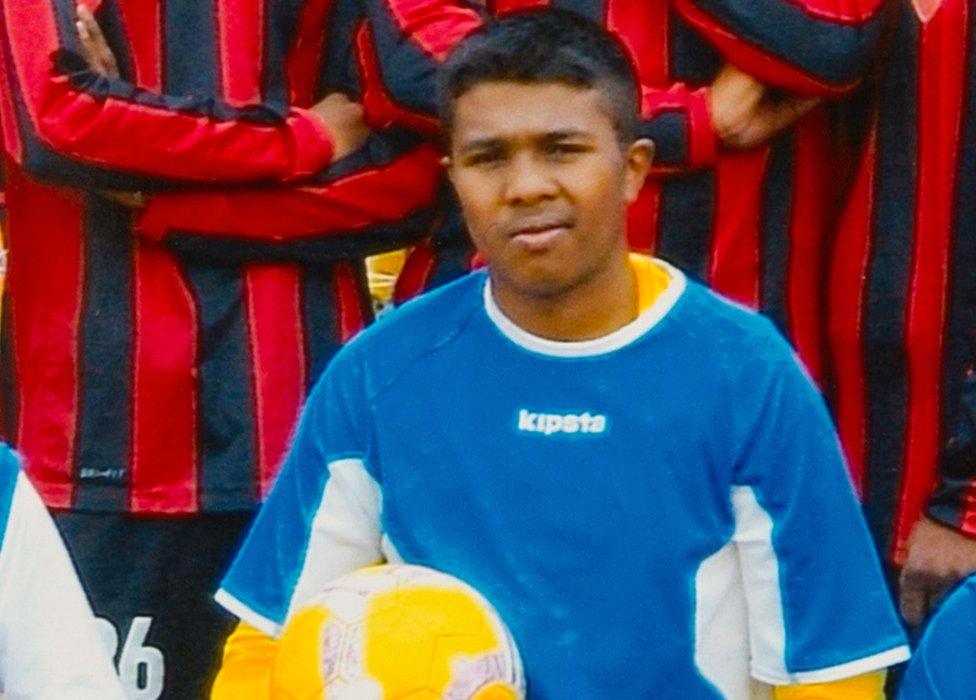
Brighton student Nitharsan Ravi died alongside four of his friends
Camber Sands deaths
Kenugen Saththiyanathan, 18, known as Ken, died alongside his brother Kobikanthan Saththiyanathan, 22, known as Kobi, both from Erith, south-east London.
Their three friends who also died were Nitharsan Ravi, 22, from Plumstead, Inthushan Sriskantharasa, 23, from Grays, Essex and Gurushanth Srithavarajah, 27, from Welling.
Two other people had also died there a month earlier.
On 24 July, Mohit Dupar, 36, from Hayes, west London, attempted to reach Brazilian Gustavo Silva Da Cruz, 19, after he got into difficulty.
Mr Silva Da Cruz died at the scene. Mr Dupar died in hospital four days later.

The senior lecturer at Southampton university also said there would have been glare or reflection at that time of the day for people looking out to sea.
The inquest has heard that lifeguards were not deployed until after the five deaths, but Dr Boxall told the hearing he doubted whether they would have prevented the deaths.
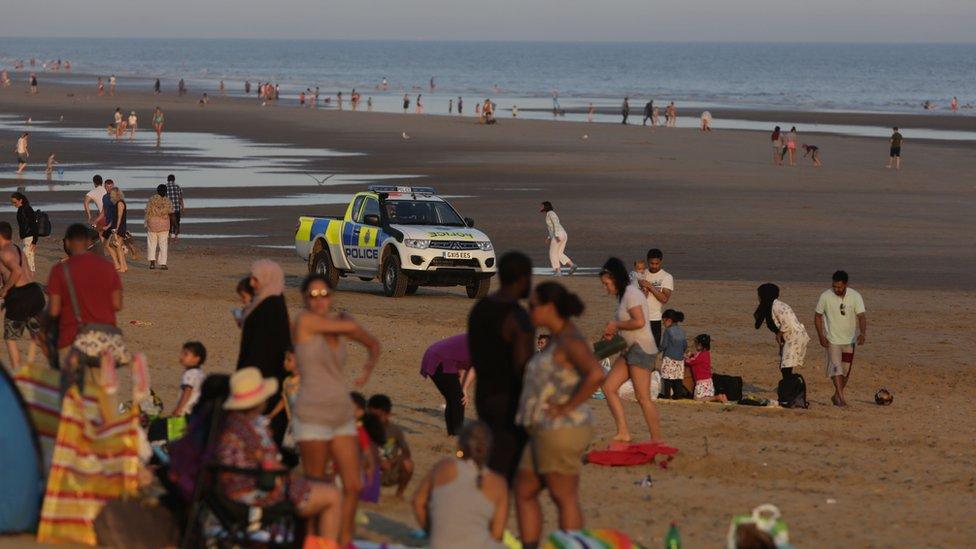
Emergency services were called to Camber Sands at about 14:10
Professor David Ball, a risk management expert at Middlesex University, told the inquest Camber did not stand out as "terribly risky, even after the terrible incidents of last year".
He said the cluster of seven deaths last year "looks suspicious" but added: "It is not totally impossible that it has happened by chance."
He highlighted a Canadian study which found people of Asian origin were more susceptible to drowning than Europeans and said it would be worth looking at.
But he added: "Camber Sands, from my point of view, is a very safe beach.
"It's not totally safe, because there are obvious hazards, but it's very safe and the risk is very low."
The inquest continues.
- Published29 June 2017

- Published28 June 2017

- Published27 June 2017
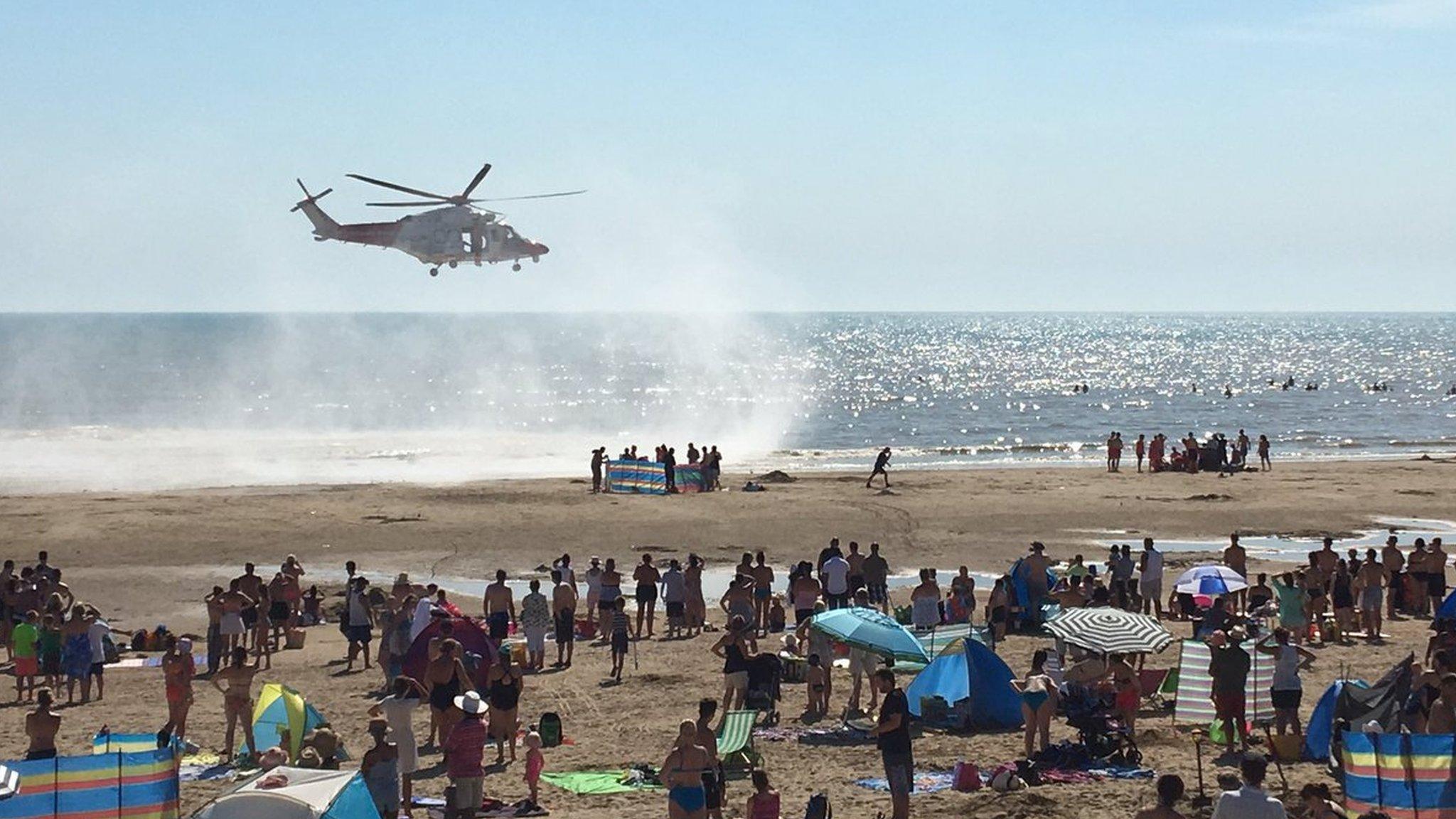
- Published26 June 2017

- Published26 June 2017
